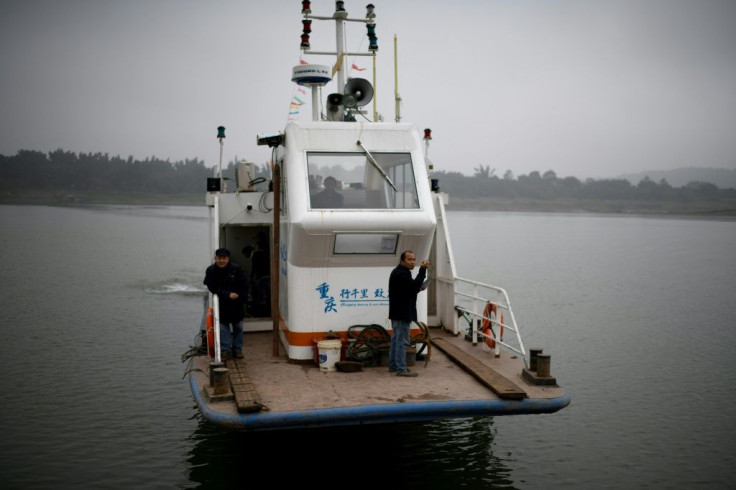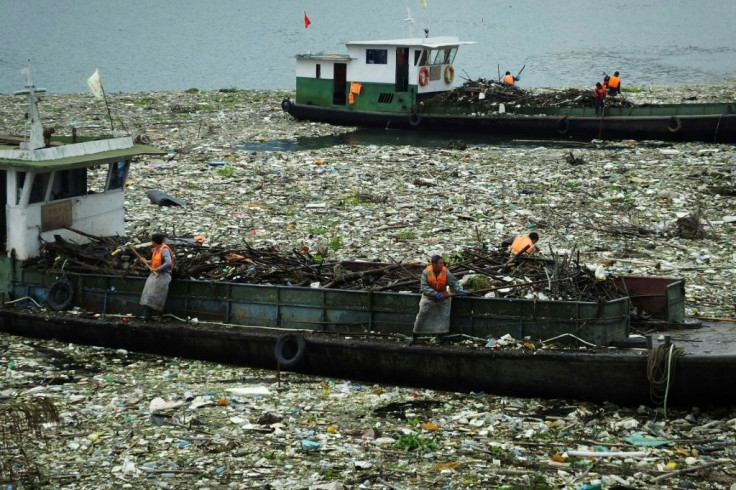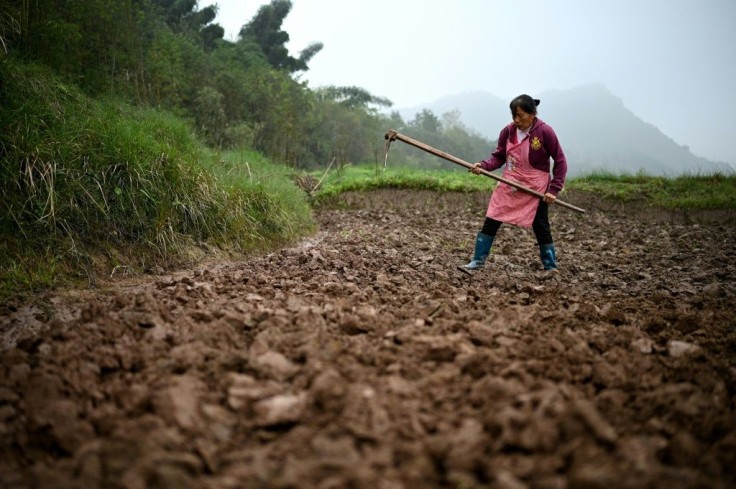China's Yangtze Fishing Communities Adapt To Life On Land
Yang Zeqiang's boat chugs across the Yangtze ferrying a few people and sacks of grain -- his new source of income after all fishing was halted along China's longest river in the name of environmental protection.
As a boy, Yang remembers seeing his father and grandfather head out in the early morning dark to earn a living fishing the upper Yangtze in China's southwest.
"I grew up here on the Yangtze River, where my family have been fishing for generations," said 52-year-old Yang, who also fished for two decades until the ban.
"Fishing was hard, but it made me feel happy to be out catching fish and I miss it."

Beijing this year rolled out a ten-year catch ban along the Yangtze and its major lakes and tributaries, trying to reverse years of overfishing, rapid development and massive pollution.
The measures mean hitting pause on a centuries-old trade.
Yang and his neighbours on Zhongba -- a small island near the southwestern metropolis of Chongqing -- are adjusting to replace their lost income.
Yang turned his home into a guesthouse and games parlour, and also bought a passenger ferry.

But he expects to make only 20,000 yuan ($3,000) this year, a quarter of what he made when he fished -- and the ferry runs at a loss unless he carries at least ten people.
"I can't make a living from those alone," he told AFP.
In Sichuan province, neighbouring Zhongba island, tens of thousands of fishing boats have been destroyed or dismantled by authorities, and more than 16,400 fishermen have lost their licenses.
Official red banners hung around Yang's quiet village remind locals: "Don't fish for a living, be proud to protect the fish."

Most residents told AFP they understand the need to protect the depleted "mother river", as China wakes up to the environmental impact of decades of "growth first" development.
And while the over-harvested Yangtze basin once accounted for 60 percent of China's total freshwater fishing output, it now makes up less than one percent.

The overdue attention on conservation has impacted nearly 300,000 fishing families, however.
"When we were fishing, we could earn more," said 71-year-old Zhao Zejin, a fisherman for 40 years before the ban. "People's lives were better."
He now sells sacks of seeds, which he lugs from the quayside down to Yang's boat, staggering under the weight.
"After the fishing ban, the fishermen on the island were all looking for jobs," said Yang's neighbour Zhao Huaiping.

"We are old and no one wants to hire us."
Decades of development have severely damaged the world's third-longest river, which is choked with toxic chemicals, plastic and garbage.
Trash flowing from the Yangtze is the most significant contributor to plastic waste in the world's oceans, while the eleven major dams along the river have also hit migratory fish travels and ecosystems.
A WWF report this year said four Yangtze fish species are now extinct, and another 61 threatened.
Numbers of Yangtze finless porpoises have dwindled to the hundreds.
Changing weather patterns as a consequence of climate change have also led to severe flooding which has an impact on biodiversity.
Protecting the Yangtze -- which irrigates an area responsible for 45 percent of the country's GDP -- is now a priority for the Chinese leadership.
Conservation programmes have been springing up along the river -- including some community-organised clean-ups and nature reserves, curbs on development and closing riverside chemical factories.
"The (fishing) ban alone will not turn the Yangtze back into a healthy river," said Sieren Ernst, CEO of the Climate Cost Project.
"I would like to see a comprehensive ecosystem management programme for the whole Yangtze basin that looks at the total biological health in the region -- humans included."
Punishments have already been handed out for illegal fishing, including 13 fishermen sentenced this month.
Officials promised skills training for fishermen, and Yang says the local government gave a one-off grant which covered half the price of his ferry.
It also advertises his hostel on their website.
But other hoped-for developments have not happened.
Only a winding, muddy track leads to the quayside for boats to Zhongba, and locals worry there is not enough to draw tourists -- particularly with local specialities off the menu.
"Many guests asked to eat the Yangtze River fish," Yang said.
"I have to tell them we cannot eat it -- there is nowhere to buy it and I can't fish for it."
Large investments have also left Yang in debt, and he owes 100,000 RMB (over US$15,000).
"The ban on fishing is a national policy," he said with a sigh. "So there's no option for us."
© Copyright AFP 2024. All rights reserved.





















